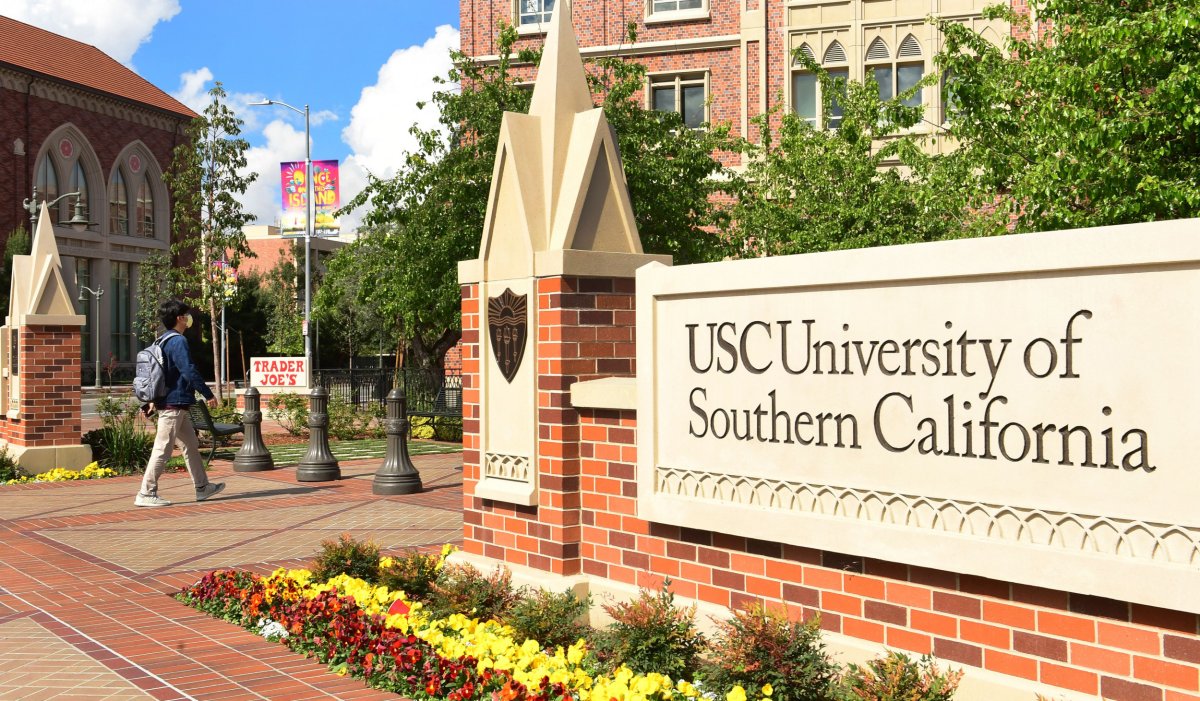This past week, I resigned as vice president of the undergraduate student government at the University of Southern California (USC) after being harassed and pressured for months by fellow students because they didn't like one of my identities. It wasn't because I am a woman, or identify as queer, femme or cisgender. All of these identities qualified me as electable when students' votes were cast last February. But because I also openly identify as a Jew who supports Israel's right to exist as a Jewish state—i.e., a Zionist—I was accused by a group of students of being unsuitable as a student government leader. I was told my support for Israel made me complicit in racism, and that by association, I am racist. Students launched an aggressive social media campaign to "impeach [my] Zionist a**."
Let's be clear: This is anti-Semitism.
My Jewish and Zionist identities have helped shape every part of who I am, and they cannot be separated from one another. Nearly 96 percent of American Jews support Israel as the Jewish state, inherently connected to our religious history and communal peoplehood. An attack on my Zionist identity is an attack on my Jewish identity. The suggestion that my support for a Jewish homeland would make me unfit for office, or would justify my impeachment, plays into the oldest and most wretched stereotypes of Jews: accusations of dual loyalty and holding all Jews responsible for the actions of the Israeli government.
I was elected to represent all USC students. In fact, the values of social justice I ran on are rooted in my Judaism and Zionist beliefs. Through the teachings of Kavod HaBryiot, dignity for all, I understand we have an obligation to stand with our fellow humans to ensure an end to all injustices throughout our campuses and our communities. The value of Lo Ta'amod, "You Shall Not Stand Idly By," is what drove me to march with my fellow Trojans and Angelenos to protest injustices against the Black community. And the suffering of the Jewish people—the persecution, massacres and genocide we have experienced throughout our history—has taught me to speak out for all those who are mistreated.
During this deeply disturbing time, I have been fortunate to receive the support of family and friends, the campus Jewish community and USC Hillel. I am grateful that the university administration suspended my impeachment proceedings, and that President Carol Folt recently stated that there is no place for anti-Semitism at USC. But I am disappointed that it was only after I resigned that the university recognized the need to publicly protect Jewish students from the sort of anti-Semitic harassment I endured. Resignation was the only sustainable choice I could make to protect both my physical safety and mental health.

We all have the right to our opinions, and to disagree. But in today's day and age, our campuses have shifted the priority from authentic in-person conversations to comments and retweets—and we cancel anyone with whom we disagree on any issue. There is a disturbing lack of nuance or willingness to grapple with the messy complexities of an issue, and there is no longer any room for change or growth. Students made presumptions about my Zionist identity and leapt to unfair conclusions. No one asked me to explain my passion for Israel. No one asked to learn together, or to try to understand and build connections. Instead, the people with whom I have shared a campus for years, the people with whom I desperately want to serve, have tried to make me feel ashamed, invalidated and dehumanized because of who I am.
The sad reality is this was not the first time I encountered this on my campus. During the campaign period, other Jewish students and I were targeted by having our campaign signs removed and dismantled multiple times over the month-long campaign. Additionally, a troll account was created that called my running mate and I "Pro-Israel White Supremacists" and, during the debate, a student directly questioned my ability to represent all students since I was a supporter of Israel. It was upsetting, to say the least, but what is perhaps more disturbing is how normal my story is on college campuses. Across the country, Zionist students are being asked to disavow their identities or beliefs in order to simply enter many spaces on campus. My Zionism should not, and cannot, disqualify me from being a leader on campus—nor should others presume what that means about my positions on social justice issues.
As I begin to move past this difficult time, I hope to partner with my peers, allies and the broader community to show the many faces of anti-Semitism and call out those who marginalize others in spaces where we should feel safe and welcome. What happened to me is wrong and unjust. Now, it is my turn to make sure this never happens again.
Rose Ritch is a rising senior at the University of Southern California.
The views expressed in this article are the writer's own.
Uncommon Knowledge
Newsweek is committed to challenging conventional wisdom and finding connections in the search for common ground.
Newsweek is committed to challenging conventional wisdom and finding connections in the search for common ground.
About the writer
To read how Newsweek uses AI as a newsroom tool, Click here.








